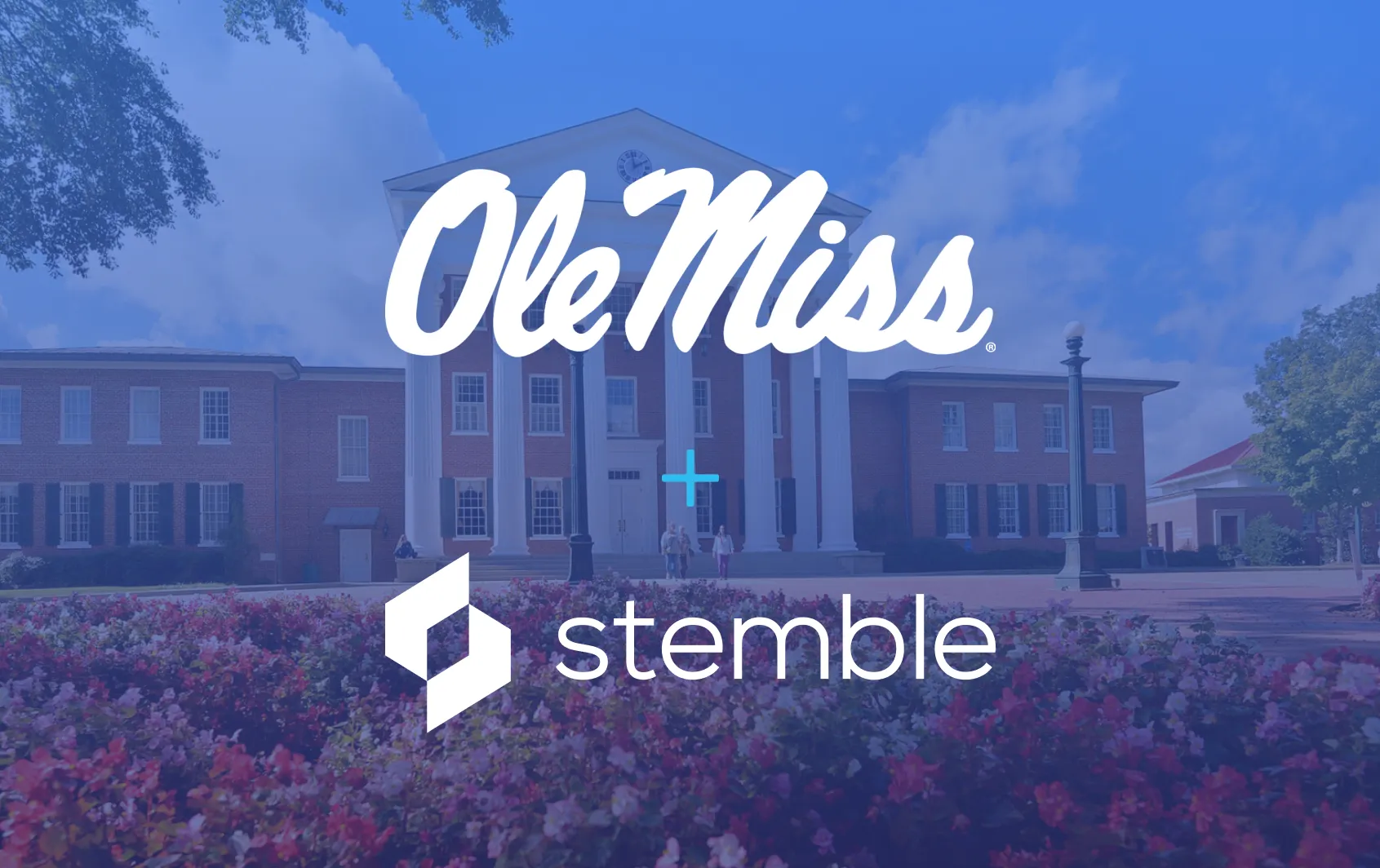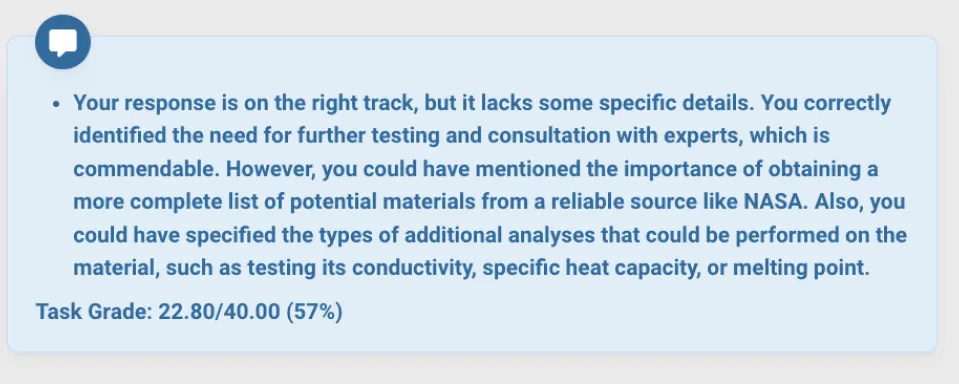
University of Mississippi Chemistry Department – Case Study
University of Mississippi Chemistry Department’s Transformation with Stemble's Innovative AI-Powered Solutions
Ole Miss and Stemble's collaboration marks a new chapter in higher education. Their innovative approach in the Chemistry Department, utilizing AI for grading and offering virtual lab simulations, exemplifies how technology can transform teaching and learning.
-
Prof. John Wiginton — Key Faculty Member
-
Olivia Harwick — Head Teaching Assistant

Background
The University of Mississippi, commonly known as Ole Miss, is a public institution based in Oxford, Mississippi, known for high research activity and strong emphasis on sports and athletics. Ole Miss is dedicated to providing educational opportunities and fostering excellence in learning, discovery, healthcare, and engagement, for the people of Mississippi and beyond.
The Ole Miss Chemistry Department emphasizes and leverages a hands-on, practical learning experience for their general chemistry students. However, like many institutions, they were faced with the challenge of increasing student enrollment and a concomitant demand on teaching staff. Reducing the time-cost of teaching assistants’ (TAs) grading obligations, bolstering student engagement, and boosting educational performance were all of paramount importance.
Challenge
The faculty and TAs at Ole Miss were challenged by the workload associated with grading a growing number of lab reports and pre/post-lab quizzes manually. Considering there are more than 1,000 students enrolled in general chemistry, this is quite an undertaking.
Prof. John Wiginton had recently started implementing inquiry-based general chemistry experiments. This required students to reflect more on the techniques they were learning and understand when/why to apply them in a self-guided context.
However, this valuable independent learning approach naturally increases the grading burden due to the associated open-ended question format and lengthy student responses subject to vast grader interpretation.
Furthermore, with each TA having their own distinct grading style, inconsistencies in evaluation were a prevalent issue. Limited by physical lab capacities and resources, the department sought an innovative solution to better prepare students for lab experiences and to provide more consistent and timely student response feedback.
Solution
In partnership with Prof. John Wiginton and dedicated Head TA Olivia Harwick, Stemble rebuilt the Ole Miss General Chemistry I lab course by digitizing their pre- and post-lab assignments onto the Stemble platform. The key advancements of this process included:
AI-Powered Grading: Leveraging AI technology, Stemble introduced AI-powered grading that automatically assessed post-lab assignments and simultaneously provided detailed feedback to students. This immediate, personalized and virtual instructional support improved students’ learning outcomes and significantly improved their writing relative to the past semesters which occurred prior to Ole Miss’s partnership with Stemble.
Interactive Lab Simulations: These “digital twin” simulations mirrored the actual lab procedures students would soon encounter in the upcoming week. The video game-like environment not only engaged students but also significantly boosted their preparedness and confidence for in-lab work.
I was getting chills when reviewing the feedback that AI was giving to students because it was so close to exactly what I would have said.
– Olivia Harwick
Impact
The implementation of Stemble’s platform brought transformative changes to the Ole Miss Chemistry Department:
Increased Feedback Quality
With AI grading, students received in-depth feedback on their assignments, helping them understand their strengths and areas for improvement (see example below).

Improved Consistency
All students received standardized feedback and grading, effectively eliminating inconsistencies across the large cohort of TAs and ensuring fair assessment for all.
Reduced TA Workload
TAs encountered lesser grading demands, allowing them to pursue research opportunities. In the pilot of AI-powered assistive grading, Stemble was able to reduce the grading workload on TAs by 70%.
Enhanced Student Learning
Students showed significant improvements in lab performance due to better preparation via the interactive simulations. In particular, writing quality was drastically improved, given that students were able to receive real-time feedback from AI, which had been trained with instructor-provided rubrics.
There’s no question that the writing I received from students was significantly better after using Stemble. This is exactly how I thought AI should be utilized in chemistry education.
– John Wiginton
Future Work
Ongoing work with Ole Miss includes the further refinement of Stemble’s Large Language Models (LLMs) to better match the feedback given by human instructional staff. By fine-tuning examples from the pilot, Stemble is targeting 100% accuracy in subsequent semesters.
Additionally, Stemble is expanding their offering to include TA training directly within the platform. This will allow TAs to receive most of their standardized (such as Workplace Hazardous Materials Information System (WHMIS) and laboratory workplace safety) and specialized training (such as how to give formative feedback, refreshers on the experiments they’ll be instructing on, etc) directly within Stemble. Like with student-centered training, this will enhance training consistency while decreasing the burden on administrative faculty and staff.
Conclusion
The collaboration between Stemble, Prof. John Wiginton, and Olivia Harwick at the University of Mississippi represents a new era in chemistry education. The AI-related initiatives not only enhance the teaching and learning experience but also set a benchmark and precedent for other departments to follow. The remarkable results at Ole Miss serve as a testament to the effectiveness of integrating technology into academic curricula, strongly suggesting that institutions can simultaneously achieve scalability, personalization, and educational excellence with the right tools and vision.
Published